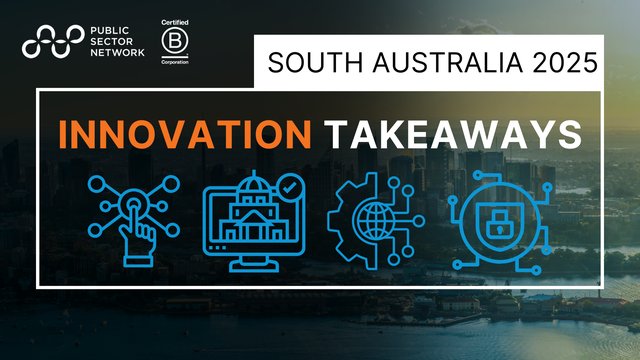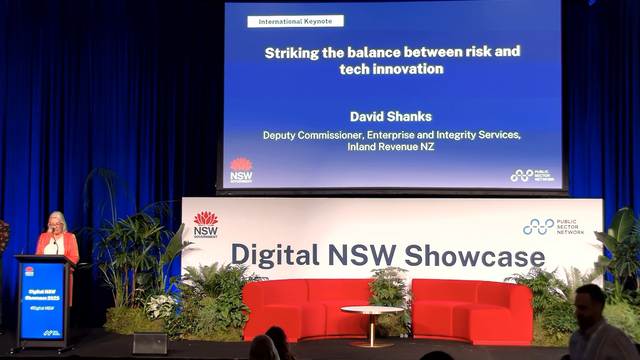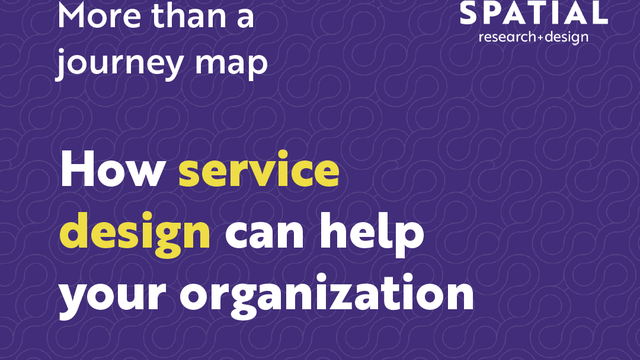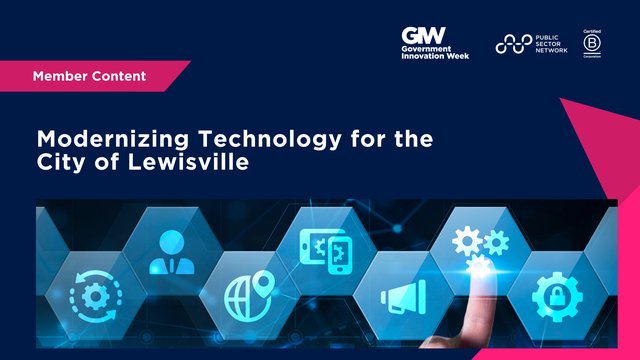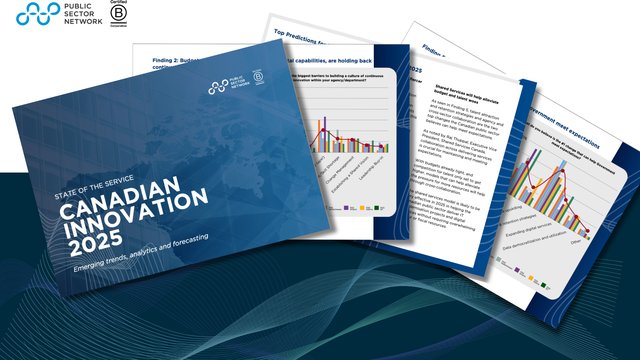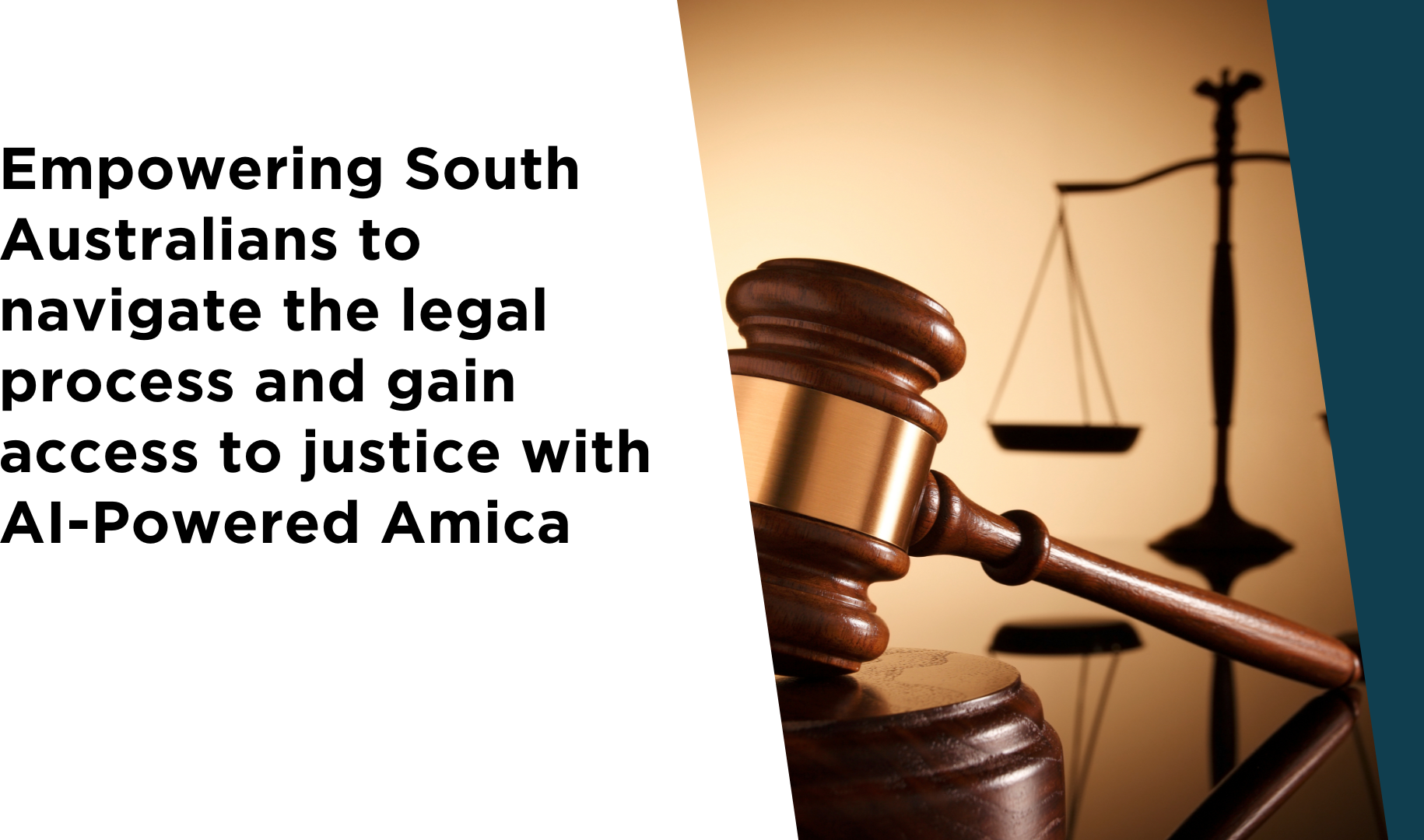
With David Mazzone, Chief Operating Officer, Legal Services Commission of South Australia
Quick Facts:
- App Name: Amica
- Lead Organisation: National Legal Aid, Australia
- Launch Date: June 2020 (Amica 1 launched in January 2023)
- Technology Used: Artificial Intelligence (AI), natural language processing (NLP), sentiment analysis
- Funding: Seed funding of $350,000; total funding of $5.7 million from the Commonwealth Government
- Key Features: AI-powered division of assets, mobile-first interface, plain English communication, guided pathways, and dispute resolution without requiring a lawyer.
- Usage Stats: 1.6 million website views, 9,000 registered matters (Amica), 12,000 suggested divisions (Amica 1), 1,400 agreements finalised.
- Social Value: Estimated community benefit of $35 million.
- Target Audience: Individuals in family law disputes, including those with domestic violence (DV) situations, individuals ineligible for legal aid, and those seeking affordable legal options.
Current Gaps in the Justice System
The legal aid system in Australia faces a significant challenge in terms of accessibility and affordability, particularly for those caught in the "missing middle"—individuals who do not qualify for legal aid but cannot afford private legal services. The family law system, with its complexity and cost, can be overwhelming, leaving many without access to justice.
Moreover, traditional legal services are constrained by entrenched practices that prioritise face-to-face consultations with lawyers, which can be costly and intimidating for many individuals, especially those in vulnerable situations such as victims of domestic violence (DV). Another challenge is the misconception that people with low socioeconomic status or those involved in family disputes cannot use or understand digital tools.
How Amica Closes the Gaps
The Amica project was created to directly address these gaps by leveraging AI and other modern technologies to offer a mobile-first platform for separating couples. The tool provides them with the ability to self-manage their legal disputes, including the division of assets, without needing to engage a lawyer unless absolutely necessary. Through a user-friendly interface and AI-guided suggestions, the Amica platform empowers individuals to navigate the legal process in a simpler, more affordable, and less intimidating way.
For individuals facing domestic violence or power imbalances, Amica provides a tool that allows them to participate in the legal process on their own terms, offering one-sided usage where they can gather information and make decisions without needing both parties to register or engage at the same time. By making legal guidance accessible in plain language and via mobile devices, Amica also caters to the evolving expectations of tech-savvy Australians who prefer to access services online rather than in person.
User-Centric Design Features
The Amica project was meticulously designed to meet user needs by prioritising accessibility, affordability, and simplicity in navigating family law disputes. The team behind Amica recognised the barriers many Australians face when accessing the legal system—particularly the high costs and emotional strain. In response, they developed an AI-driven platform that users could access independently, without needing a lawyer. The production process was user-centric from the start, incorporating extensive feedback from families and individuals who had gone through separations. Their insights helped shape a solution that simplified legal language, reduced costs, and was intuitive to use.
One of the key decisions was making Amica mobile-first, ensuring that the platform could be accessed on a range of devices, which was crucial for users in rural or remote areas. The AI technology powering the platform was another major innovation. It uses natural language processing (NLP) to provide tailored recommendations based on each couple’s unique circumstances, helping to divide assets and create legally binding agreements. The production team worked closely with family law experts to ensure that the AI could handle complex and sensitive issues, including those involving children and property disputes.
Additionally, the platform was designed with safeguards to support vulnerable users, such as those experiencing domestic violence. Amica provides specific resources and advice to these individuals and includes options for pausing or exiting negotiations safely. By integrating these features, the production team ensured that the platform could meet the needs of a diverse range of users, from tech-savvy urbanites to vulnerable populations in need of extra support.
Broader AI Opportunities in South Australia’s Justice System
The Amica project represents an innovative opportunity for integrating artificial intelligence (AI) into the broader legal landscape in South Australia and beyond. AI-powered tools like Amica have the potential to transform access to justice, particularly in sectors that have traditionally been resistant to adopting new technology, such as family law.
The platform’s use of AI to suggest asset divisions based on past cases and common settlement outcomes provides users with a clear, data-driven starting point for negotiations. This not only speeds up the process but also makes the legal experience less adversarial and more collaborative. Amica's AI capabilities ensure that the system prevents power imbalances by refusing settlements that are grossly unfair, offering a reality check to disputing parties who might have unrealistic expectations.
In a broader sense, Amica serves as a proof of concept for the application of AI in government services. Its success showcases how AI can improve the efficiency, fairness, and reach of justice systems, even in traditionally conservative fields like law. The ability to automate document generation, guide users through complex legal processes, and resolve disputes without the need for human lawyers highlights the untapped potential for AI across a variety of legal and regulatory domains in South Australia’s justice system.
As AI becomes increasingly sophisticated, platforms like Amica could expand their scope to offer more personalised legal advice, powered by data analytics and machine learning. This opens up opportunities for predictive legal guidance, where AI could provide more tailored solutions based on individual circumstances, historical data, and even real-time legal updates.
Risks and Control Measures
Despite its potential, the implementation of AI-driven tools like Amica in the justice system is not without challenges. The legal profession is traditionally risk-averse, and introducing AI into such a space requires robust risk management and controls.
Risk | Concern | Control Measure |
Legal and Ethical | One of the key barriers Amica faced was the initial skepticism from legal professionals who believed that legal disputes, particularly those involving complex family dynamics or domestic violence, should only be handled by qualified lawyers. There was a concern that AI could not account for the nuance and emotional complexity of these cases.
|
To address this, Amica incorporated user feedback at every stage of the project. By building the system based on real user needs and conducting ongoing reviews to ensure legal accuracy, Amica demonstrated that AI could complement traditional legal services without replacing human judgment. |
Risk of Power Imbalances | Family law disputes often involve unequal power dynamics, where one party may dominate negotiations. This was a significant concern, especially for cases involving domestic violence or financial control. |
Amica mitigates this risk by using AI to limit power imbalances in negotiations. The system prevents unfair settlements (e.g., 80-20 asset splits) and ensures both parties receive fair guidance based on similar cases. Additionally, Amica 1, the one-sided version, allows individuals to test out the system before formally engaging with their former partner, providing them with more control over the process. |
Data Privacy and Security | As a digital tool handling sensitive personal and legal information, Amica had to ensure stringent data protection measures were in place to prevent unauthorised access and data breaches.
|
The platform operates with robust encryption protocols and user authentication systems. Furthermore, Amica ensures that sensitive information, such as communication between disputing parties, is protected by restricting the use of aggressive or inappropriate language. |
Technological Literacy | There is often a misconception that vulnerable populations, particularly low-income individuals or those without formal education, cannot navigate technology effectively.
| Contrary to these assumptions, Amica's user research found that clients wanted a mobile-first solution. The platform’s interface is designed for simplicity, using plain language and step-by-step guidance to ensure that even users unfamiliar with legal jargon or digital tools can navigate it easily. |
What’s Next?
The success of Amica, both in terms of user engagement and community impact, has set the stage for future developments in AI-driven legal services. One of the next steps for the organisation is to further enhance the capabilities of Amica by incorporating more advanced AI tools, such as natural language processing (NLP) chatbots that can provide legal information in plain English. This would allow users to ask legal questions in everyday language and receive clear, accurate responses without needing to sift through dense legal documents.
Amica’s development team is also exploring ways to integrate real-time translation and interpretation services into the platform, which would further enhance accessibility for non-English speakers or those who require special accommodations. Additionally, predictive analytics could be used to inform better policy decisions, allowing legal aid organisations to identify trends and unmet needs in real-time, potentially leading to more targeted and effective legal services.
Another focus is expanding the use of AI beyond family law. The lessons learned from Amica could be applied to other legal areas, such as small claims, consumer disputes, and tenancy issues, where similar guided pathways and AI-driven solutions could improve access to justice.








